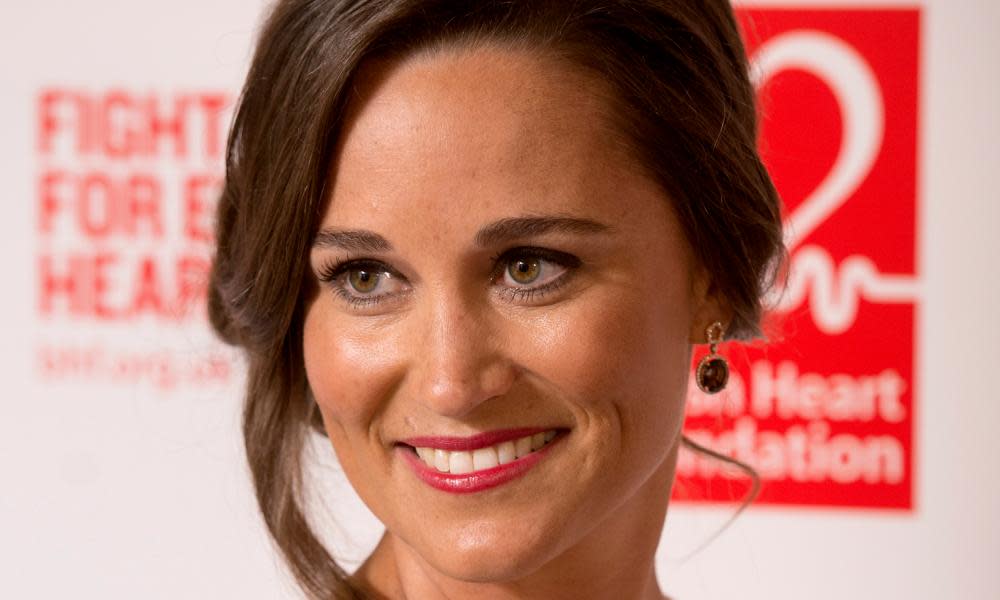Every church wedding is a public event – even Pippa Middleton’s | Peter Ormerod

Some are calling them gatecrashers. After all, they haven’t been invited to the celebrity wedding of the month – so what will all these normal people be doing there?
Yes, the fact that Pippa Middleton’s forthcoming nuptials may be attended by members of the public is clearly a bit of a shock to some. All that meticulous planning, all that co-ordinated designer garb, all the calculated ingratiation in which various hangers-on have indulged to get an invitation – what’s the point if the pristine picture is sullied by a bunch of locals who may not be wearing quite the right clothes, who may not have quite enough money, who may not have quite enough connections to A-listers or aristocrats, who may, you know, smell a bit?
To which the reply should be: you clearly fail to understand quite what a Church of England wedding is. Exasperatingly as the institutional C of E can be, much of what it represents is worth cherishing – especially at a time when our society grows more divided and our lives become increasingly corporatised and privatised. And nowhere is this more evident than in the church’s view of celebrity marriages – or, to use the correct ecclesiastical jargon, “marriages”.
This reminds us of something deeper, too: people are part of our lives regardless of whether we invite them in
It actually has an official policy on such things. It begins with the observation that “the same law applies to the weddings of celebrities in Anglican cathedrals and churches as it does to the weddings of any other persons”; the fact that this needs spelling out tells us something in itself. It is splendidly dismissive of “exclusivity” deals: “A marriage is a public ceremony which at the least all parishioners are entitled to attend.”
And there’s the legal right of members of the public to interrupt proceedings: “Anyone is entitled to raise genuine impediments to the formalisation of the marriage.” No matter how powerful or influential or famous the bride or bridegroom may be, “final decisions in relation to music, furnishings and flowers rest with the minister of the parish”. Same goes for organs, bells, choirs, filming, photography. The underlying message is: we don’t care how much money you have; you’ll get the same treatment as anybody else.
This reminds us of something deeper, too: people are part of our lives regardless of whether we invite them in. Some of our greatest friends may have arrived entirely unbidden. If weddings are to have any connection at all to real life, then they too should be open to elements of chance and chaos. The best things about weddings are often those that we cannot control, those unexpected moments, those that deviate wildly and thrillingly from the plan. And that usually means the involvement of other people in surprising ways.
Describing the established church as subversive and countercultural may sound strange, but in some crucial ways it does stand against some of our less healthy social and economic trends. Its churches remain public places, free to enter; its ceremonies remain public events, free to attend. There’s no corporate sponsorship, no private security firm. It’s not just a church of England, but a church for England; it’s there for you whether you want it or not, and wherever you live, you’ll have a church and some sort of priestly figure you can visit whenever you so wish.
Its churches and cathedrals are places of refuge and sanctuary, literally and metaphorically. Contrast that with the burgeoning privatisation of public space, where more and more of what we once shared as a collective endeavour is governed by regimes of control and surveillance in pursuit of profit.
Of course, the worst manifestations of religion do just the same, invoking dogmas to control and gods to survey. But at their best, religions can liberate us from our desire to edit and curate our existences, and instead encourage us to welcome the “other” into our lives. So far as the church is concerned, there are no gatecrashers at an Anglican wedding. And no matter how gilded and glamorous and glitzy the accessories and accoutrements may be, there are no celebrities, either – just people.

 Yahoo News
Yahoo News 
